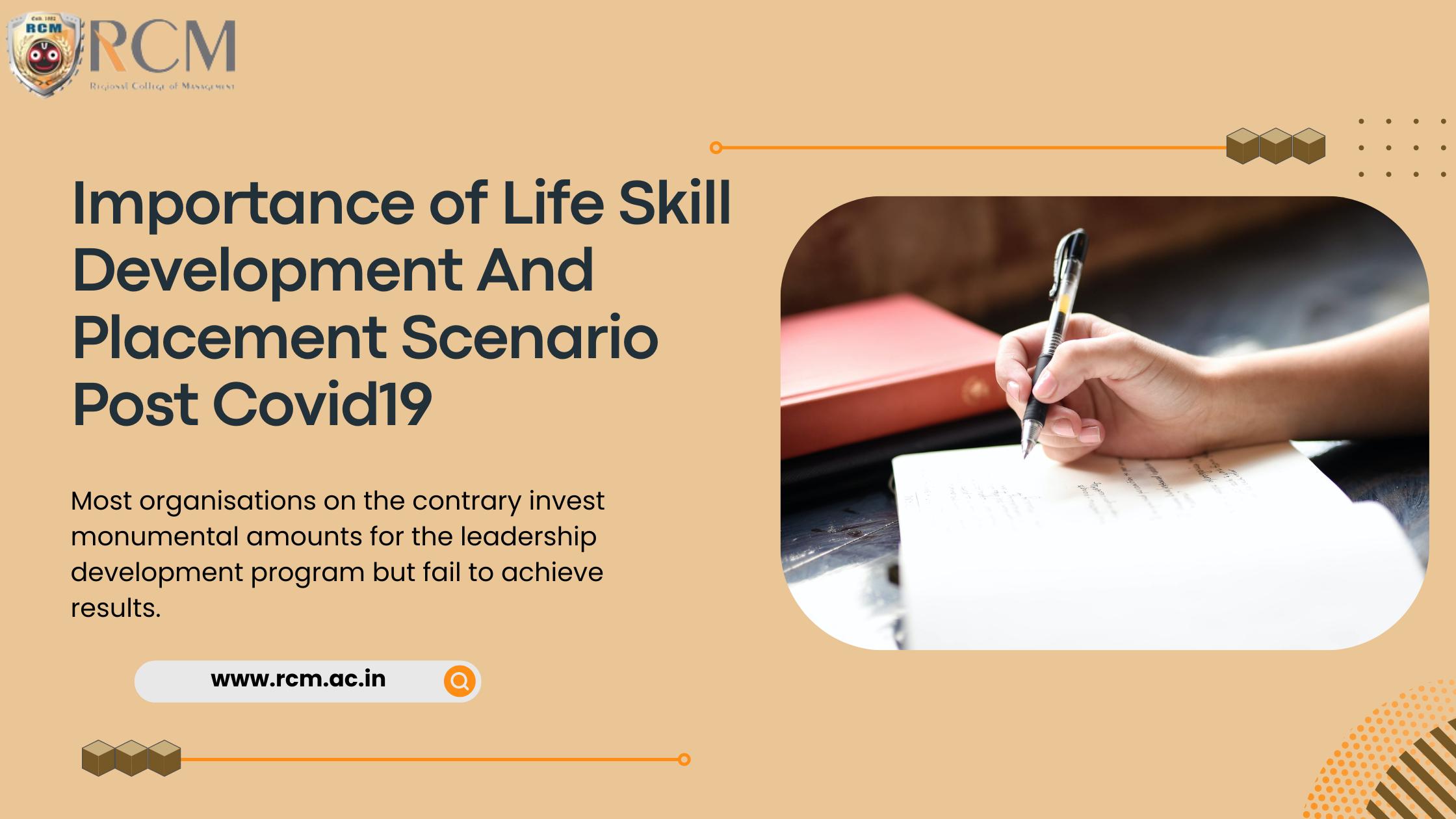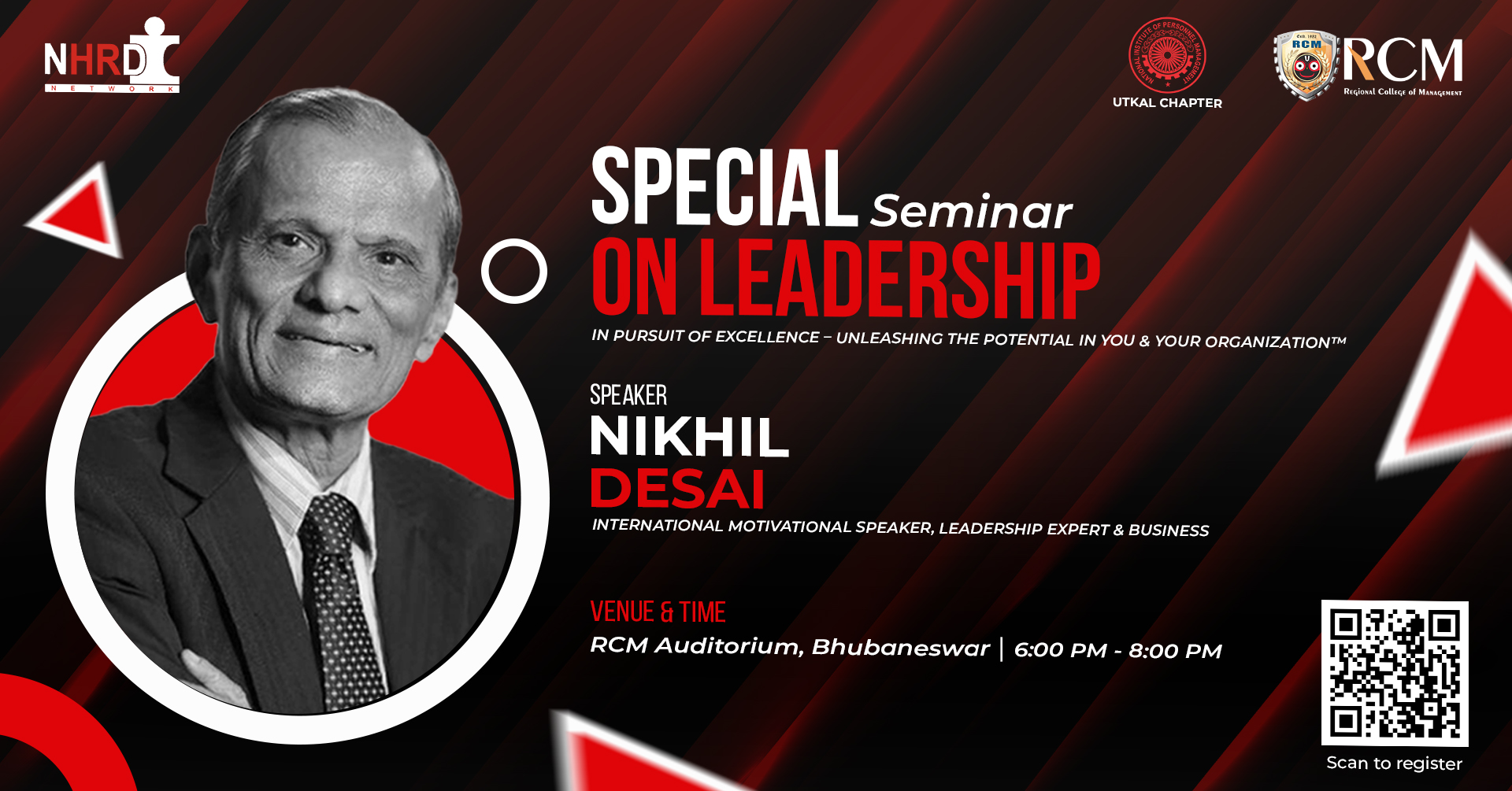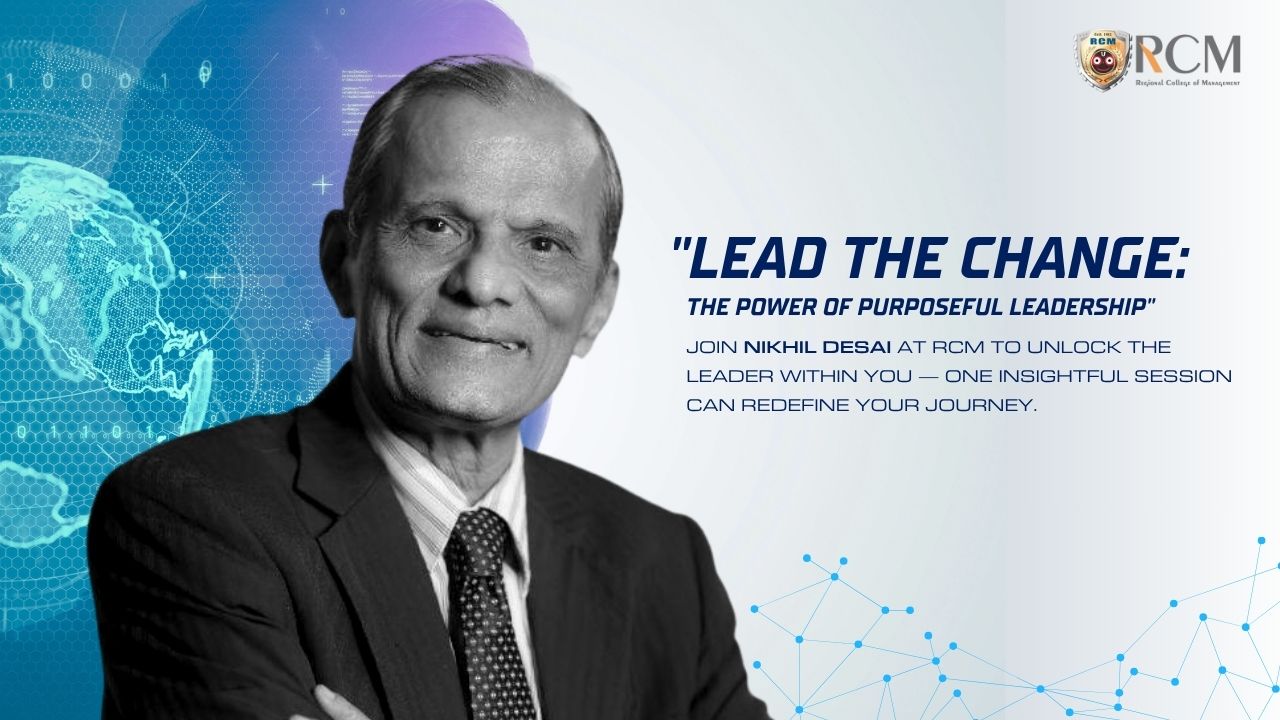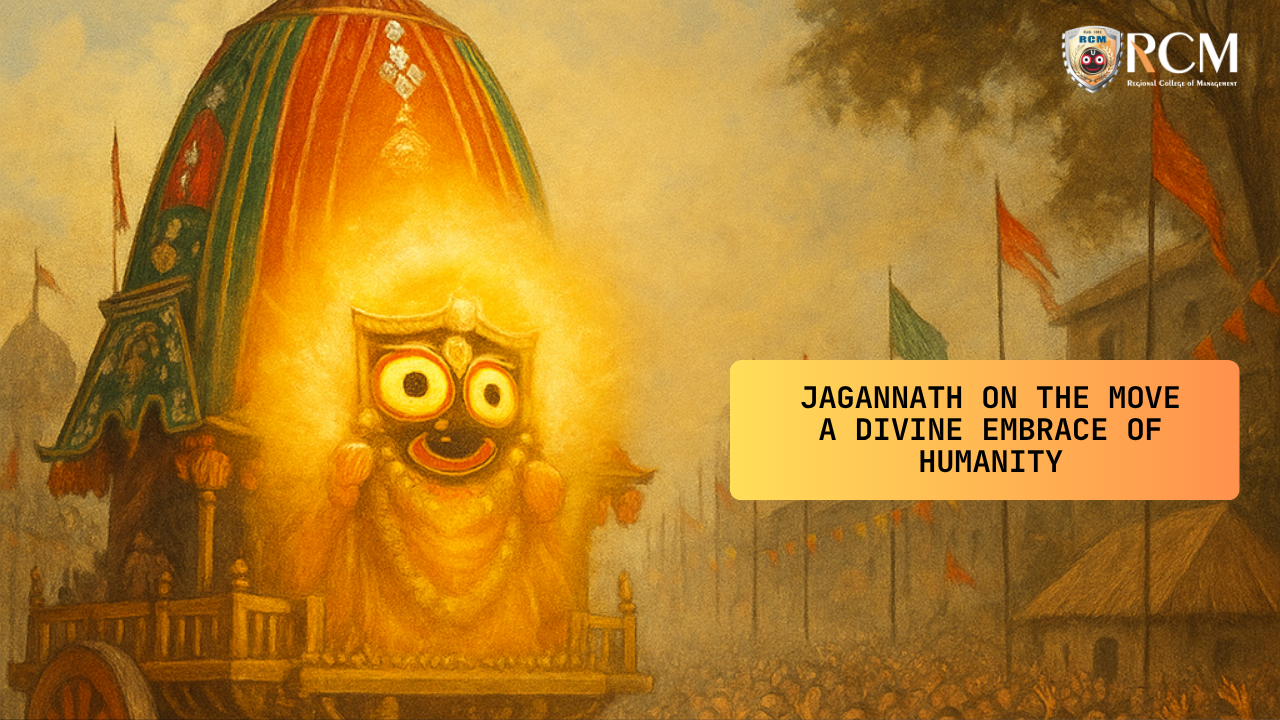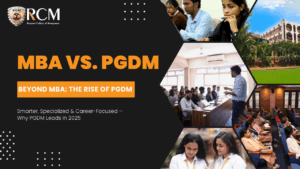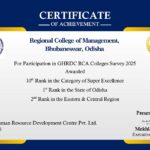Written By, Dr. Annjaan Daash || Dr. Sanghmitra PalOur article focuses on the importance of life skill development for both children and adults.
Dr. Annjaan Daash: Training and Placement Head, Regional College of Management, Bhubaneswar, Odisha; Research Scholar at Annamalai University, Annamalai Nagar, T.N., India
Dr. Sanghmitra Pal: Dean Regional College of Management, Bhubaneswar
Abstract:
As a part of Life Skills Development, the students should be trained in various fields of personality development and communicational skills. The training can be imparted on Quantitative Aptitude, Verbal Ability, Mock Group Discussion, Mock PI, and skill development in technical domains. Students should be encouraged to attend the training programs to upskill their performance in the campus interviews.
Students should be handheld through career guidance; motivational activities, counseling, knowledge-sharing activities, and by various capacity-building measures. The trainees should be closely monitored for improvements and gauged through several practice sets.
Due to the pandemic COVID-19, companies have been scrapping interviews. It is to be expected that 60-65 percent of interviews would get dropped or delayed due to lockdown in many parts of the country and people are encouraged to stay at home to curb the spread of the virus.
The overall hiring sentiment in the country is likely to witness an adverse impact in the short term with 60-65 percent of interviews getting postponed, especially in the services sector, following the slowdown across industries triggered by the coronavirus pandemic.
Vision 2020
To empower the students with pre-placement training so that they get employed, which helps the institute/ university to boost its brand image. A thorough discussion on the importance of Group Discussion during placement, Assessment parameters during placement, Verbal and Non-verbal communication to have a successful GD round, and Do’s and Don’ts of participating in a Group discussion round has been dealt with. The importance of the rules to write a resume and Frequently Asked Questions in an interview during placement drives has been discussed.
Keywords: Importance of Group Discussion, resume building sessions, COVID-19, Placement scenario.
1. Introduction:
Group means a number of persons gathered together. Discussion is the process of talking about something. A Group Discussion is a cooperative activity within a framework of ground rules. Group Discussion is an interactive oral communication situation. Group Discussion is considered to be a very effective selection round as the candidates are tested very precisely on a specific skill set that is required by a company.
Monologue: Long speech by one actor in a play/ film as a part of the theoretical or broadcast program.
Dialogue: Discussion between two or more persons in a play/film
Conversation: Informal talk between two or more persons.
Debate: A formal discussion on a particular matter in a public meeting, or legislative assembly in which opposing arguments are put forward and then ends in the vote.
ISSN- 2394-5125 VOL 7, ISSUE 17, 2020
Group Discussion: Focused conversation on a particular topic.
1.1 Why companies conduct GD rounds:
The organization wants to make sure that the candidate is suitable for that particular job. It is a process in which the participants sit together, discuss a topic and try to reach a consensus. If it’s an administrative / HR job, then they have to display confidence. If it’s a sales job then the candidate must have the right mix of assertiveness & willingness to serve the customers. Different managerial traits are spotted in this discussion like Leadership abilities, planning, and negotiation skills.
1.2 Types GD:
Topic
- Based Discussion
- A controversy
- A descriptive topic
- An abstract topic
![]() A Case – Study
A Case – Study
1.2.1: A Controversial Topic:
- Candidates are required to take a stand & support it with suitable examples. Ex: China – the Biggest threat to India
- Video games contribute to youth violence Caste based reservation
The approach towards such types of topics is to take a stand either For or Against the topic.
1.2.2 Descriptive Topic:
The candidates need to have in-depth knowledge of the subject. Ex. : Indo – US relations
Ex. : Poverty in India
The approach towards such types of topics is to support the topic with facts and figures.
1.2.3 Abstract Topic:
Creativity plays an important role.
- Ex. A bullet for a bullet – is this the right strategy
- Ex: Silence Has A Voice
- Ex. : Black Gold
The approach towards such types of topics should be simply, to say what one thinks about the topic. Companies at times conduct JAM sessions when the number of candidates is more.
1.2.4 Case Study:
In a case study-based group discussion, first, the candidates are asked to read the case. After that, they are required to analyze the case and discuss it, based on the points, with the members of the group. Group Discussion on a Case Study is a growing form of GD at the top B-schools. Individuals are given a real-life situation / imaginary case and they have to present their opinion in given situation.
Ex.: Scene in a police station, hospital, flood-hit areas, recruitment cycle in a company
1.3 Assessment Parameters for Organizations:
ISSN- 2394-5125 VOL 7, ISSUE 17, 2020


- Body Language: Postures, Eye Contact
- Communication Skills: Pronunciation, Fluency
1.3.1 Assessment Parameters:
- Knowledge: Content regarding the subject. One has to be a voracious reader and increase their knowledge by reading newspaper, magazine and watching TV, technical domain.
- Leadership skills: These include initiation, adaptability, decision-making skills, ability to reach to a common consensus. It may also include the ability to moderate the discussion.
- Confidence Level: confidence level adds a lot of value to one’s candidature. So the individuals should display confidence in a group discussion
- Communication skills: Pronunciation and fluency: If an individual has good points to put across but does not communicate then the individual does not have the chance to impress the evaluators. To improve communication skills one needs to read books on communication and general subjects. This would improve the vocabulary strength of the individual. One needs to pick up good phrases and try to use them in day-to-day discussions.
- Listening skills: Candidates should incorporate words and their meanings by comprehending the same. Hearing does not involve understanding. So active listening is essential in group discussion which is acquired with attention and understanding of ideas and facts. Candidate should be always alert.
- Body Language :It may include Postures, Gestures
Eye contact: A candidate should make eye contact with other candidates while expressing their pont of view.
ISSN- 2394-5125 VOL 7, ISSUE 17, 2020
Initiate the discussion: Candidates have to take their own opportunity to speak & be confident as nobody would initiate them to speak.
Maintain your Stand: One should not change their stand & give logical justification in support – facts & figures. A person cannot be evaluated if they don’t speak. Participants need to ignore the observer.
1.4 NON- VERBAL COMMUNICATION:
- Hand’s on lap, right hand on top of left – Logical person
- Frequent hand movements – distractive person
- Occasional hand movements – Emphasis
- Legs firmly on the ground – Alertness
- Shaking of legs – Frustration
- Eyebrow raising – Curiosity
1.4.1: INTERACTIVE STRATEGIES AND USEFUL EXPRESSIONS:
- To Begin a GD
- It is a thought-provoking topic, let’s start the discussion…
- I feel that . . .
- To give opinion
- In my opinion
- I am of the view
3. To accept others’ view
- I am strongly in favor of that
- This is a good idea
4. To disagree with others:
- I don’t agree with you on this point
- I am afraid I think differently
5. To focus on the discussion:
- I think we are off the track
- I am afraid we are diverting from the topic
6. To interrupt politely:
- Sorry to interrupt you but can I add a point here
- Excuse me I have a point to convey.
1.5 Do’s of participating in a GD:
- Listen to the subject carefully.
- Put down your thoughts on paper.
- Initiate the discussion if you know the subject well.
- Listen to others if you don’t know the subject.
- Support your point with some facts and figures.
- Make a short contribution of 25-30 seconds 3-4 times.
- Give others a chance to speak.
- Speak politely and pleasantly. Respect the contribution of other members.
- Disagree politely and agree with what is right.
- Summarize the discussion if the group has not reached a conclusion.
Don’ts of participating in a Group Discussion:
- Over speaking, interrupting, and snatching someone’s chance to speak.
- Arguing and shouting during the GD
- Looking at the evaluators
ISSN- 2394-5125 VOL 7, ISSUE 17, 2020
- Talking irrelevant things and distracting the discussion
- Having negative body gestures like touching the nose, leaning back on the chair, knocking the table with a pen etc.
- Bringing in erratic statistics.
- Displaying low self-confidence with shaky voice and trembling hands.
- Trying to dominate the discussion
- Putting others in an embarrassing situation by asking them to speak if they don’t want.
2. Minimum Rules in Writing a CV Appearance: How it looks Consistency of information
Use lowercase everywhere, unless otherwise stated Spelling and grammar checks
Good looks and proper alignment
Content
Include all achievements, interests, strong points, projects, internships Write a few sentences on projects/activities that one is proud of
Highlight all those activities and projects about which one wants the interviewer to ask questions.
2.1 CONSISTENCY:
stability or uniformity in CV.
- Whatever information in the resume is given should be maintained.
- Ex: Font size and percentage mentioned in education qualification.
- Unnecessary use of upper case letters should be avoided.
- Grammatical errors should be avoided.
- Uniformity in alignment should be there throughout the CV.
- Cannot have 73% at one place and 73.8% at another, for the same exam. So it is needed to maintain uniformity in writing. While writing the percentage under educational qualification one should consider one decimal place or make it a round figure.
Cannot write B.Tech. /MBA/ PGDM at a place and B.E. MBA/ PGDM elsewhere
- Consistency of fonts: Cannot have multiple fonts without reason, One should use the same fonts and size throughout the CV.
2.2 Minimum Rules: uppercase and lowercase:
Must know when to use uppercase, and when to use lowercase Proper Noun is always uppercase
e.g. your guide’s name or your father’s name Abbreviations must be in uppercase
e.g. RCM/ CUTM
Beginning of a paragraph or sentence – use uppercase I or God – uppercase. Always.
When such rules don’t apply, one must use lowercase Never use uppercase without reason.
Writing long sentences in uppercase looks ugly.
- One should know where to use upper case and lower case.
- Ex: project title/ objective: the entire should not be in upper case.
2.3 Spelling and grammar checks:
Spelling and grammar mistakes create a bad impression
These can easily be corrected in MS Word.
ISSN- 2394-5125 VOL 7, ISSUE 17, 2020
If your CV shows mistakes that can be easily identified by MS Word, it would mean that you are casual about your CV and possibly about other things as well.
2.4 Looks and alignment:
Commas, full stops, and other punctuation marks must come immediately after the word. There should be a space after the punctuation mark.
Mark, mark is ok but mark ,mark does not look ok. The alignment should be left, and center align. Use the same alignment throughout the CV. These are common errors that students do while writing the CV.
3. Content :
Include all achievements, interests, strong points, projects, internships Write a few sentences on projects/activities
Highlight all those activities and projects about which you want your interviewer to ask you questions
What to include?
Include all areas where one wants the interviewer to ask questions (this means that one is expected to be well prepared especially in those areas to answer questions)
Where an individual has done something really well (e.g. a robotics competition, some programming assignment, or some internship or project), highlight it with 2 or 3 sentences.
Must include interests and hobbies like painting, dancing, debating, etc. Awards, if any, should find a place in a CV
Projects, summer intention: objective, learning, outcome, work done and duration should be mentioned in the CV.
In hobbies One should know different kinds of dance forms, types of art forms, famous dancers, fames painters.
What to avoid :
Highlighting areas where you don’t want questions
Frivolous stuff like net surfing, chatting with friends, etc. Be honest in anything one includes.
3.1 Preparing for the interview:
Come well prepared with 5 sentences on some open questions. One should be prepared with the frequently asked questions that is asked in the interview.
One should give good examples to support the statements given. e.g.
- Introduce yourself
- What are your interests?
- What are your strengths?
- What are your weaknesses?
- Why do you want to join our company?
- Why a software career? (for those not in CS, and appearing for an IT job) If you make statements, be prepared to explain:
- “Accenture has got many awards” – you must know at least 2 awards
- “Accenture has a good culture” – be prepared to explain what is a good culture
3.2 During the interview:
Avoid criticizing your teacher or family or University or friends
Avoid mentioning wrong information which would indicate your ignorance Avoid appearing helpless or ignorant (no one will give you a job out of pity)
ISSN- 2394-5125 VOL 7, ISSUE 17, 2020
When you make a mistake, take responsibility – don’t defend obvious mistakes
If you have written you have got 6.8% marks in B.Tech./ MBA., avoid defending it. You lose even if you win.
Don’t make excuses:“I came to this interview because my College asked me to come.”
For any certification course you have done, one needs to show the project with the certificate to the interviewer.
3.3.1 Preparation before the interview:
After preparation of CV before appearing for the interview. Read the company website
Find some connections that you like
Prepare some questions on the company’s technologies or customers, in case they ask you “Do you have any questions?” While going through the company’s website have a look at the vision statement, mission statement, clients and partners name, products and technologies.
1. Brush up fundamental concepts
Read your CV, and brush up possible questions on all areas you have written on your CV, : it deals with candidate’s technical field. One should be thorough with their subject knowledge
If you have charts, diagrams of your Project, bring a hard copy of that to the interview. Make use of it to illustrate your project.
Give your CV to a friend and ask him/her to interview you
2. Show commitment and seriousness
No one will recruit you if you do not really care for the job. Be serious and attentive during the interview.
Be a good listener.
Make eye contact with the interviewer during the interview.
3. Avoid making disclosures of ignorance, or excuses, e.g.
I know only basics of thee subject I studied this 2 years back …
“As I have heard, it’s like” …
We did not have good lab facilities Accept mistakes when you don’t know
When you are wrong, listen to their explanation.
It’s ok to ask the interviewer what the right answer is.
4. FAQs
- Tell me something about yourself / introduce yourself.
- Where do you see yourself 5 years down the line?
- What are your greatest strengths? Support it with live ex.
- What are your hobbies?
- What do you know about our company?
- Why should we hire you?
- Why do you want to join our company?
- What do you look in a job?
ISSN- 2394-5125 VOL 7, ISSUE 17, 2020
- How much do you expect if we offer you this position?
- Give examples where you have taken initiative & shown leadership traits.
- Describe a situation where you have worked under pressure & met deadlines.
- Tell me something about yourself/ introduce yourself.
- Qualification, objective, project title, and strengths.
- Where do you see yourself 5 years down the line?
- A long-term commitment, realistic progression.
- What are your hobbies?
- Dance, painting, debate, reading books.
- What do you look in a job?
- Relate your objective with achievement of organization goals. Look for an environment where I can use my knowledge, skills to achieve organizations objectives.
- How much do you expect if we offer you this position?
- Fair salary as per job responsibilities. Career goals matches with organization goals.
5. CONCLUSION:

Source: Aon Cocubes
ISSN- 2394-5125 VOL 7, ISSUE 17, 2020
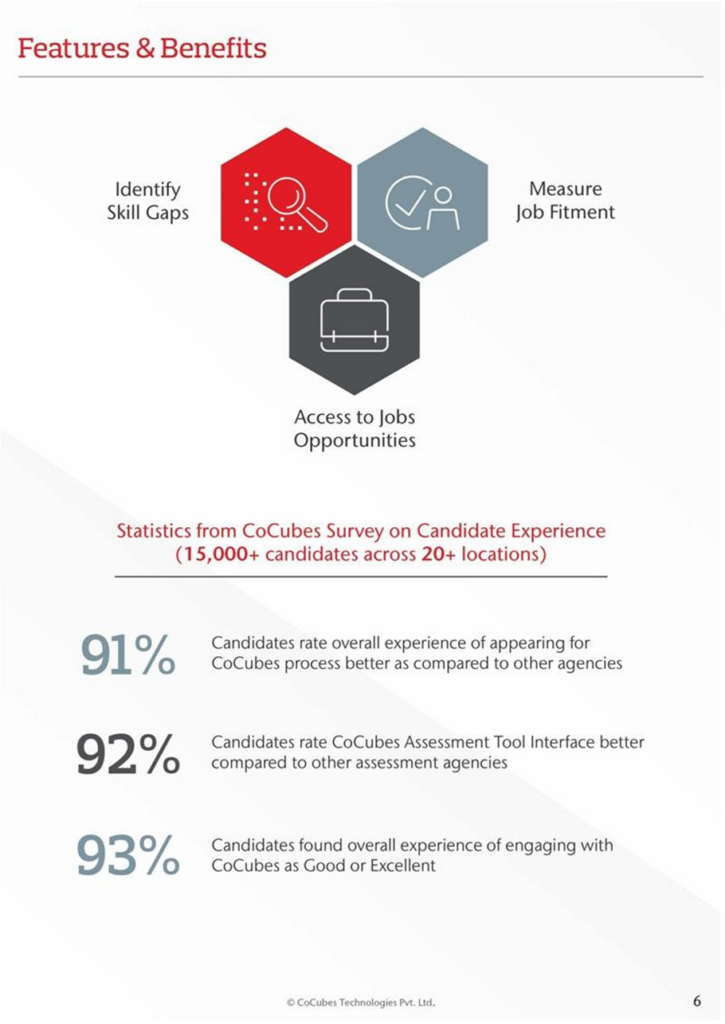
ISSN- 2394-5125 VOL 7, ISSUE 17, 2020
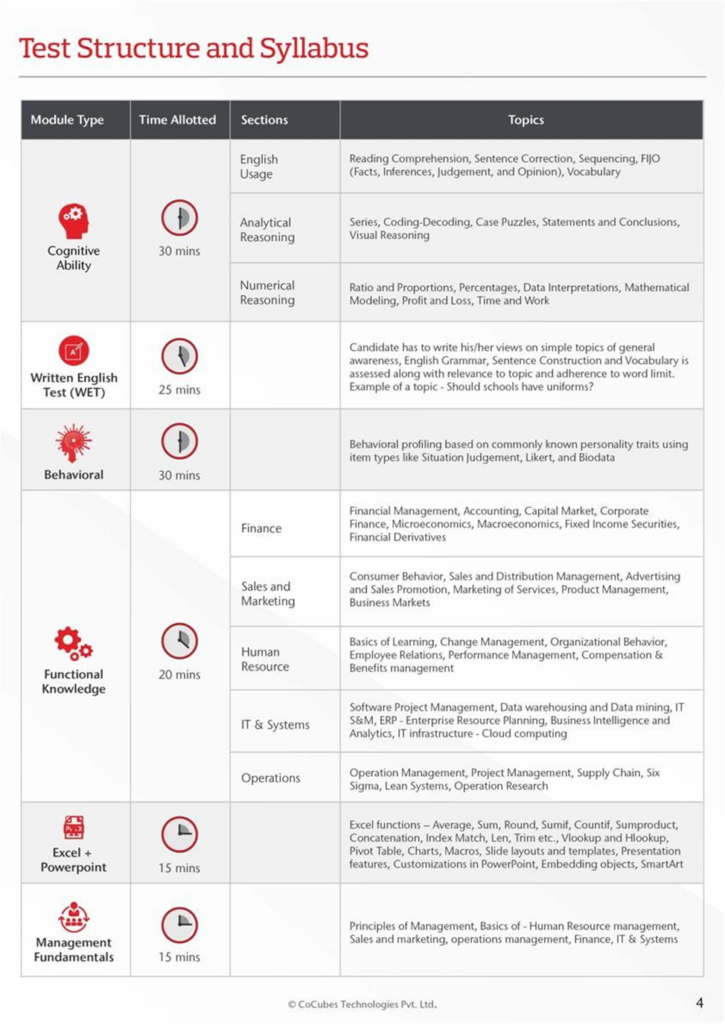
ISSN- 2394-5125 VOL 7, ISSUE 17, 2020
Impact of COVID-19 on Placement:

In todays scenario the pandemic COVID 19 which came out of the blue has a devastating effect not only on recruitment but also on the economy of the world. Though this may be for a short period but the impact would continue for several years to come.
Impact on Work-from-Home Adoption and Sector-wise Hiring Trends
90 % of companies like TCS , Accenture, Cap Gemini are doing work from home. Companies in sectors like Hospitality, Tourism, FMCG have taken a hitwhere a lot of frontline-hiring takes place are likely to witness this delay and scrapping in fresh recruitment. Companies should go for virtual mode of operating. Sectors like Banking/ Logistics/ Exports will go for virtual work front. Digital Platform companies will see an up rise.
Campus Placement Challenges and Skill Development Urgency
As far as campus placement goes, the companies will first try to survive with 44% to 50% reduction on hiring. It is a worrisome factor as livelihood would be certainly impacted. Digital marketing, digital payments, ecommerce, e learning companies will grow during this period. Offers made last year, some of them will be put on hold or scrapped. Companies will take around 12 months to recover so students need to build on technical skills and know how.
Source: ET NOW Webinar on 18-Apr-2020, Speakers :1. Manish Sabbarwal : Chairman Team Lease; 2. Hitesh Oberoi : CEO Naukri.com; 3. Tarandeep Singh : CEO Cocubes; 4. Nikunj Dalmia : Managing Editor ET Now
The overall hiring sentiment in the country is likely to witness an adverse impact in the short term with 60-65 per cent interviews getting delayed, especially in the services sector, following the slowdown across industries triggered by the coronavirus pandemic, industry experts said. “Since the outbreak of COVID-19, companies have been cancelling interviews. It is expected that 60-65 per cent interviews getting dropped or delayed as there is lockdown in many parts of the country and people are encouraged to stay at home to curtail the spread of the virus,” Team Lease Services Business Head.
Echoing a similar view, staffing firm CIEL HR Services chief executive officer Aditya Narayan Mishra said that COVID-19 has emerged as a global challenge and “this is going to push many
ISSN- 2394-5125 VOL 7, ISSUE 17, 2020
critical projects to slow track and impact revenues and profitability. As a result, companies will delay their hiring plans”.
Job search platform Shine.com CEO Zairus Master, however, said there will be some sectors that are likely to witness an uptick in hiring due to COVID-19. Healthcare, of course, will lead but as people are staying indoors, e-commerce and online delivery portals should also see a gradual increase in demand. This is also an opportune time for people to upskill themselves as they have more time and fewer entertainment options.
Michael Page India Managing Director Nicolas Dumoulin said there will be a slowdown in hiring in retail, hospitality, travel among others.However, Dumoulin said that technology-driven sectors are hiring and are conducting interviews through alternative channels like online, Skype’In fact, this has made interviews faster and convenient. Hiring of mid-level and freshers are going on. The joining of executives hired through campus recruitment may get delayed,” he added.
Source: Economics Times, April 2020
Airlines And Airport Operators
The aviation sector is already fleecing with IndiGo announcing a salary cut for its employees. Besides thatGoAir has already retrenched many of its expat pilots. If things do not improve we can expect huge job cuts in the aviation sector.
Travel, Tourism & Hospitality
Indian tourism and hospitality industry is staring at a potential job loss of around 3.8 crore, which is around 70 percent of the total workforce, due to the Covid-19 impact.
Slowdown in hiring
According to industry experts, the overall hiring sentiments is likely to witness with 60-65 percent interviews getting delayed especially in service sectors. Sectors like BFSI, Retail, and Logistics, where a lot of frontline hiring takes place are likely to witness delay. Companies have communicated to them that there is a freeze on leadership hiring for the next six months. So much so that if an offer has been made but the candidate has not resigned (from their present companies), it should be revoked.”
Source: Peoplematters.in
Make Your Recruitment Process More Efficient
At this point of time it is sheer foolishness to handle the increasing number of open applications. Hence, handling the recruitment process with email or old-fashioned recruitment software is never a good decision. During this crisis, it is more important than ever to have modern recruitment tools to help sort the increasing number of applications and still maintain a great employer brand.
One needs to communicate with recruitment team and hiring managers online and keep track of candidature. Modern HR tech and AI can help to automatically pre-screen candidates, communicate with them about how the recruitment process is going, and make sure that all information is accessible by all stakeholders.
Source: Talent adore
